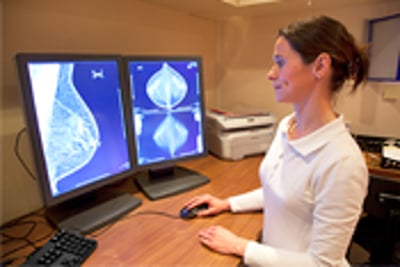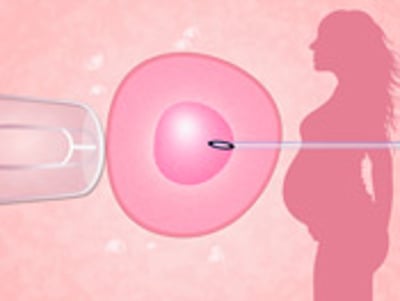FORCE's eXamining the Relevance of Articles for You (XRAY) program looks behind the headlines of cancer news to help you understand what the research means for you.
XRAY is a reliable source of hereditary cancer research-related news and information.
Learn more about the XRAY program
All XRAYs
Relevance: Medium-High


Quality of Writing: High


Personal Story : CBS News brings attention to the issues facing young metastatic breast cancer patients
Relevance: Medium-High


Quality of Writing: High


Most relevant for: Women diagnosed with metastatic breast cancer
Beth Caldwell is a former civil rights lawyer, a mother of two, and a wife who was diagnosed with stage 4 metastatic breast cancer when she 37. Mary Brophy Marcus covered Beth’s story in her piece, “The hardest part” of breast cancer under 40, for CBS News. (11/8/16)
Read More
Study : Removing ovaries before age 50 may increase the risk of chronic conditions for some women
Most relevant for: Women under 50 years of age who have had or are considering removing their ovaries
Removal of ovaries and fallopian tubes prevents ovarian cancer, but it may come with other health risks. Experts recommend removal of ovaries and fallopian tubes in women at high risk for ovarian cancer due to inherited mutations in BRCA or other genes linked to ovarian cancer risk. For these high-risk women the benefit of ovarian cancer prevention outweighs the risk of long-term complications. Based on a recent study, some researchers feel that for women who are not at increased risk for cancer, the risk for some chronic conditions is too high to consider removal of both ovaries. (11/1/16)
Read More
Study : Breast cancer mortality among Hispanic women in the United States varies by country of origin
Most relevant for:
"Hispanic" is a broad ethnic category that includes people from numerous countries. When discussing breast cancer statistics, Mexicans, Cubans, Puerto Ricans and people whose families originated in Central and South America are typically grouped into one Hispanic category. A new study looked at whether the country of origin affected breast cancer prevalence and mortality rates in Hispanic women in the U.S. (10/25/16) Este artículo está disponible en español.
Read More
Study : Breast cancer screening should be tailored to a woman’s risk factors and breast density
Most relevant for: Women who are at high risk for breast cancer due to family history, dense breasts, LCIS, or multiple biopsies
The United States Preventative Services Task Force (USPSTF) recommends a screening mammogram every other year for women ages 50-74 who are at average risk for breast cancer. But do all patients in this category benefit from this screening regimen? 10/18/16
Read More
Relevance: High


Quality of Writing: High


Article : Huffington Post article brings attention to metastatic breast cancer
Relevance: High


Quality of Writing: High


Most relevant for: People diagnosed with metastatic breast cancer
Barbara Jacoby's Huffington Post piece, "How do breast cancer and metastatic breast cancer differ?" emphasizes the need for more treatment options for patients with advanced breast cancer.
Read More
Relevance: Medium-High


Strength of Science: Medium


Research Timeline: Post Approval


Study : Rare mutations in PALB2, CHEK2, and ATM: how much do they increase cancer risk?
Relevance: Medium-High


Strength of Science: Medium


Research Timeline: Post Approval


Most relevant for: People who tested positive for one of the rare variants in CHEK2, ATM or PALB2 that are covered in this study
As multi-gene panel tests become more common, people are discovering they have mutations in genes that are not understood as well as BRCA. This can make it difficult to give patients accurate assessments of their cancer risk. For example, mutations in PALB2, CHEK2, and ATM are rare, but some specific changes in these genes are even less common. The goal of this international collaboration was to better understand the cancer risks of some very rare PALB2, CHEK2, and ATM mutations. The findings are relevant only to the specific mutations covered in this paper and do not apply to all people with mutations in PALB2, CHEK2, or ATM. (9/27/16)
Read More
Relevance: Medium


Quality of Writing: High


Article : A cancer patient’s tumor is genetically profiled—how does that info help treatment?
Relevance: Medium


Quality of Writing: High


Most relevant for: People diagnosed with advanced cancer
Jessica Wapner's Scientific American article explores the difficulties of making the vast amount of information acquired from tumor gene tests useful to patients and physicians. (9/20/16). Update: THIS INFORMATION HAS BEEN UPDATED. In late 2017, the FDA approved two separate tumor profiling tests to help guide treatment choices. The FoundationOne CDx (F1CDx) genomic test has been approved to test for 15 different targeted therapies used to treat five types of cancer, including ovarian, colorectal, lung, breast and melanoma. The FDA also approved the MSK-IMPACT and developed for use by Memorial Sloan Kettering Cancer Center (MSKCC) to scan tumor samples for 468 different cancer-associated mutations or alterations.
Read More
Relevance: Medium-Low


Quality of Writing: Medium-Low


Personal Story : Dogs: Companions, hunters, and cancer detectors?
Relevance: Medium-Low


Quality of Writing: Medium-Low


Most relevant for:
In August 2016, many news outlets published stories about how actress Shannen Doherty’s dog was able to sniff out her cancer before she was diagnosed. Is there scientific validity to that claim? (9/616)
Read More
Study : How beneficial is online communication after a new diagnosis of breast cancer?
Most relevant for:
Newly diagnosed breast cancer patients often use online communication to find more information about their diagnoses and treatment options. But does online communication benefit these patients' decision-making process? (8/30/16)
Read More
Study : Does IVF increase a woman’s risk for breast cancer?
Most relevant for: Woman at average risk for breast cancer who have or are considering undergoing In Vitro Fertilization
In vitro fertilization (IVF) wasn't commonly used until the 1980s, so its long-term effects are mostly unknown. A new study suggests that the treatment does not increase a woman's risk for developing breast cancer. (8/23/16)
Read More